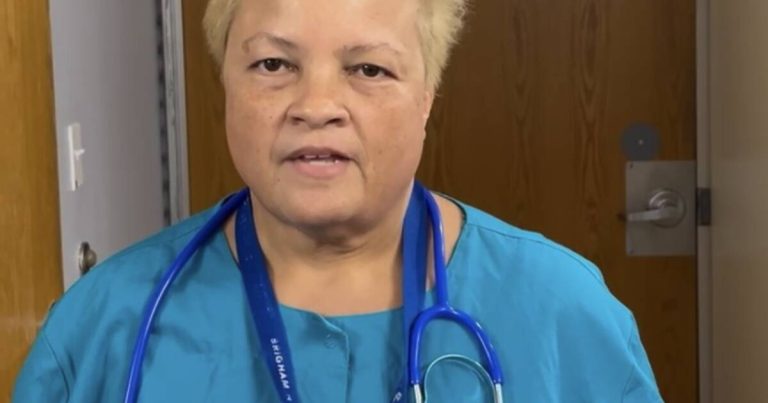Most registered nurses in Massachusetts don't think hospital administrators or lawmakers are listening to their concerns about patient safety. This is according to a survey conducted by Beacon Research. And nurses also feel that understaffing means they often deal with burnout, to the detriment of themselves and their patients.
June Scott, a nurse at Faulkner Hospital for 24 years, said, “Staffing is a huge problem in health care, and we continue to be understaffed.''
There are ugly illustrations of the fatigue faced by nurses. Last May, a fellow nurse at Faulkner University was seriously injured when he drove his car off the top floor of a hospital parking lot where he was taking a nap between shifts.
In addition to compromising their own quality of life, nurses also feel that staffing shortages are a contributing factor to worsening patient conditions, according to data from Beacon Research.
“Last year, 80% of RNs said health conditions in Massachusetts hospitals were deteriorating,” said Chris Anderson, president of Beacon Research. “That's double what it was five years ago. It's a really big leap forward.”
Research shows that staffing shortages are seen as the biggest barrier to providing quality care, with 60% of registered nurses saying it's the biggest problem they face. .
Another report on nursing in Massachusetts suggests a deeper problem. Earlier this year, the Center for Health Information and Analysis, an independent state agency, released its first survey of health care workers. It turns out Massachusetts health and human services providers are facing an unprecedented workforce shortage.
The report notes that the vacancy rate for nurses across all areas of health care is 17% and the turnover rate is 29%. As a result, we are thin on staff.
James McCarthy is an RN and union leader at Brigham and Women's. In his view, the problem lies at the root of hospital management.
“They're treating us like we're manufacturing the product,” McCarthy said. “I think that's why burnout occurs and why so many people quit. Burnout is such a big factor.”
Nurses like McCarthy worry that their voices aren't being heard, and a Beacon Research survey found that 76% feel that lawmakers aren't taking their staffing concerns seriously. It is shown that
State Sen. Cindy Friedman is one of the lawmakers paying attention to the issue. But she says she sees no easy solutions. “It's going to be really hard to solve the problem unless we make the hard choices and are willing to bring everyone who is part of this problem and part of the solution to the table,” Friedman said. . “And now we don’t have everyone at the table.”

